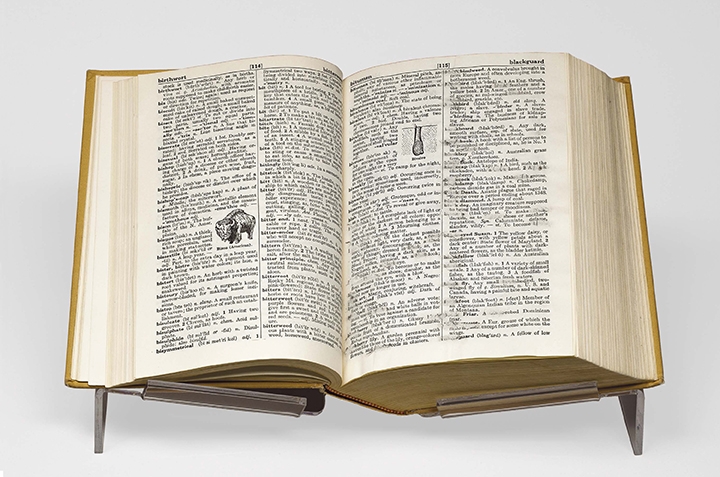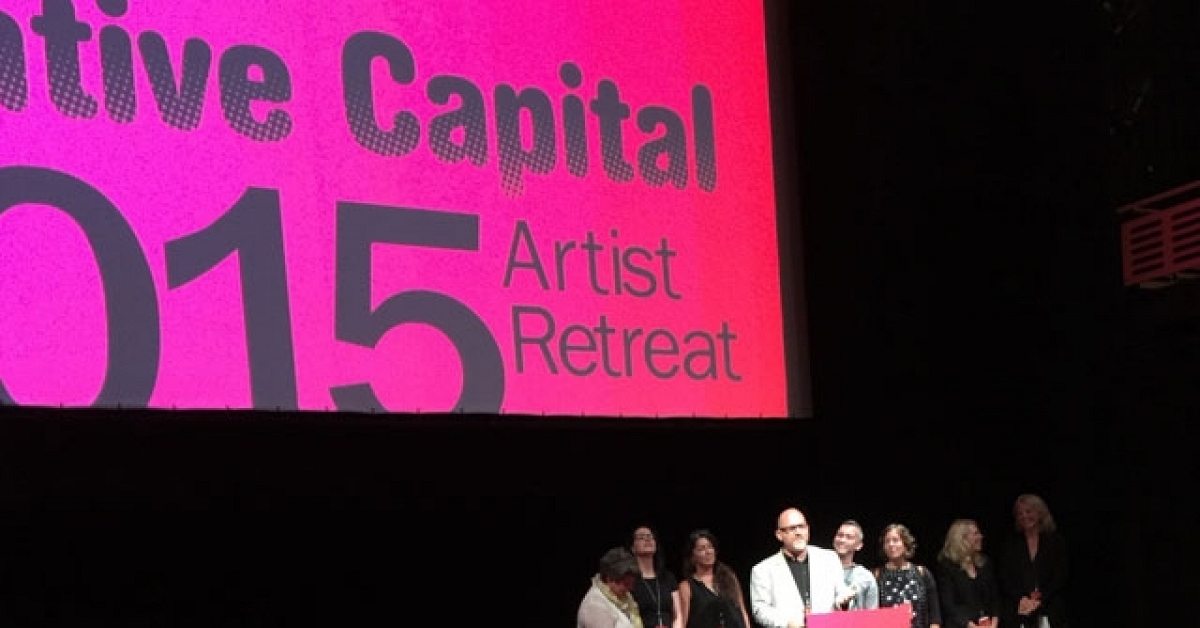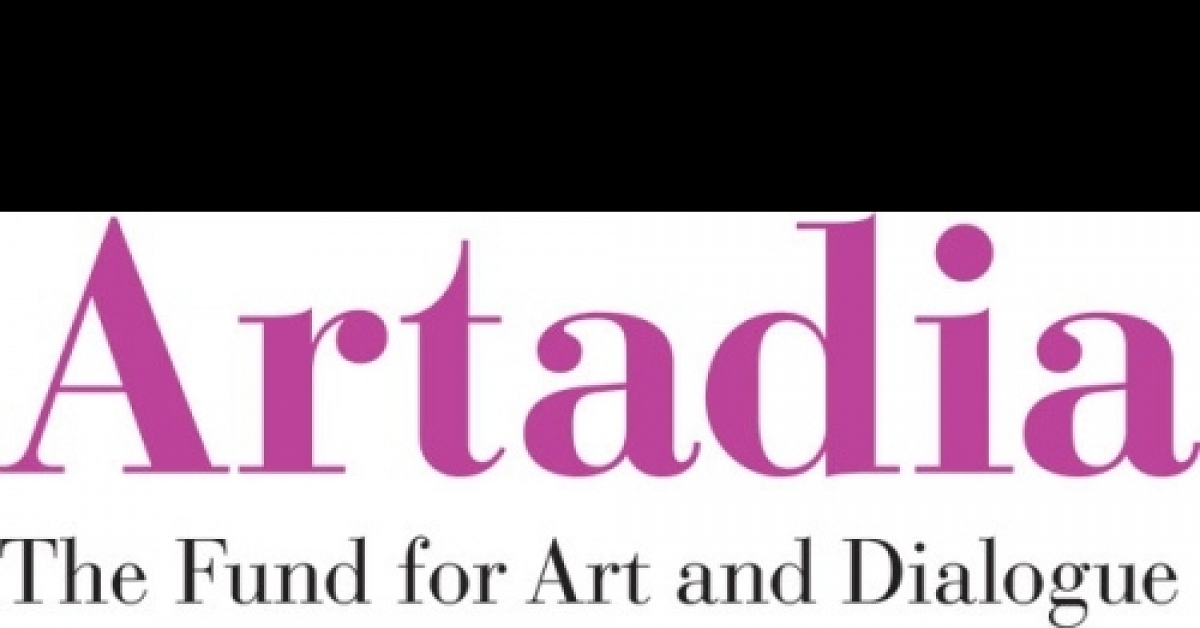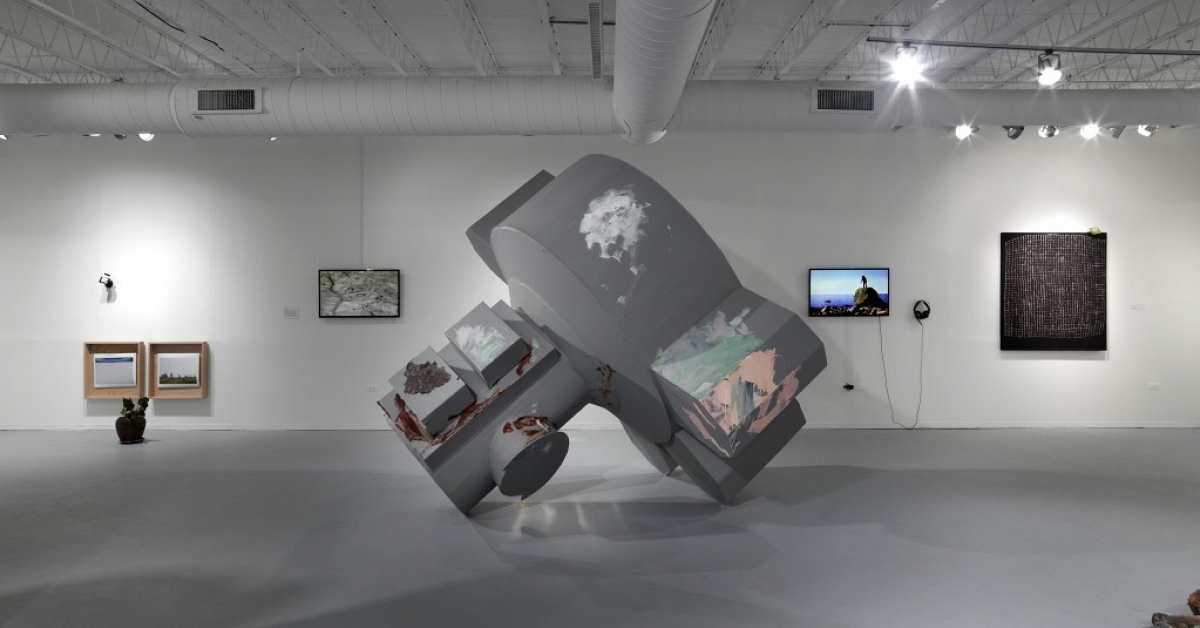Bethany Collins
Artforum / Sep 1, 2015 / by Lilly Lampe / Go to Original

In Bethany Collins’s subtle, elegant works on paper, the act of erasing leaves indexical marks like scars. Take Skin, 1968, 2015, a triptych in which a dictionary definition of the word is inscribed thrice and then rubbed out, leaving a different synonym on each sheet. The erased areas are visible as violent rips in the paper’s surface, leading the remaining words—pelt, hide, and peel—to read as aggressive actions more than nouns. The refuse of a similar work, including shreds of paper in addition to a Pink Pearl eraser, is collected in Bound, 1982, 2015, a sculptural pile that resembles rose-colored ashes, suggesting a corporeal end. A more pointed note is struck in Black and Blue Dictionary, 2014, where any presence of the words “black” and “blue” has been removed from an outdated Webster’s dictionary, leaving abrasions on the thin leaves and questions as to the implications of altering an archival text, particularly one that no one is reading. The allusion to race here is potent without being didactic.
A Pattern or Practice, 2015, a ninety-one-piece wall installation featuring words embossed rather than printed on paper, crucially expands on the aforementioned themes. The text—crisply enunciated, yet ghostly due to the lack of ink—reprints portions of the U.S. Department of Justice report on the Ferguson police department. The artist’s reproduction makes plain the varied difficulties of reading or comprehending this text. The visual and symbolic tensions in this shadow of content bring two phrases to mind: “America Is Hard to See,” the title of the Whitney Museum’s inaugural exhibition downtown, and “Black Lives Matter,” the battle cry of so many Americans this year. Collins’s work is a rejoinder that confronts the slippage of lexicon and legacy, which can always be obscured or erased.






